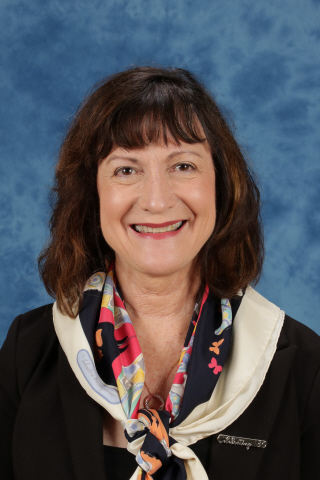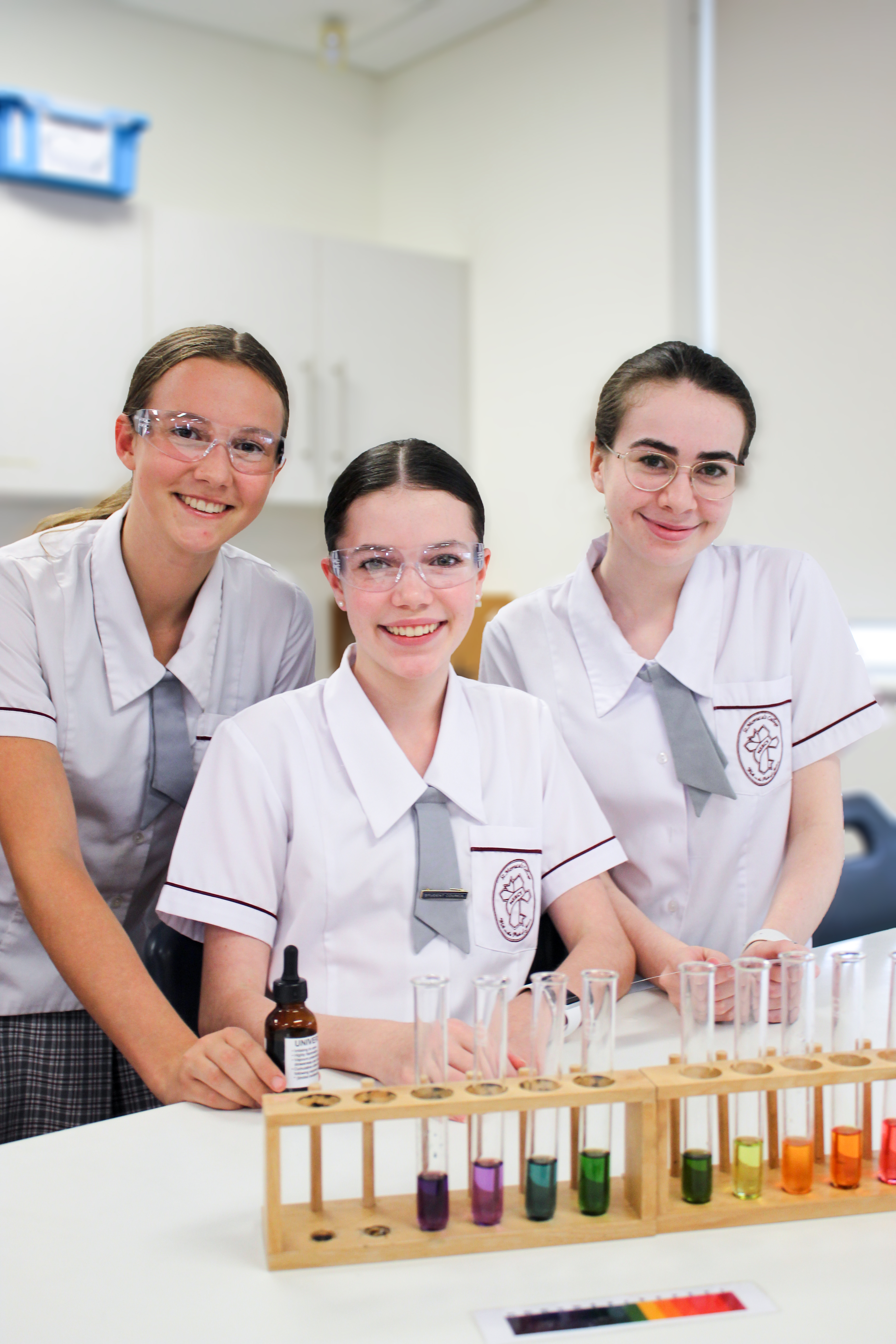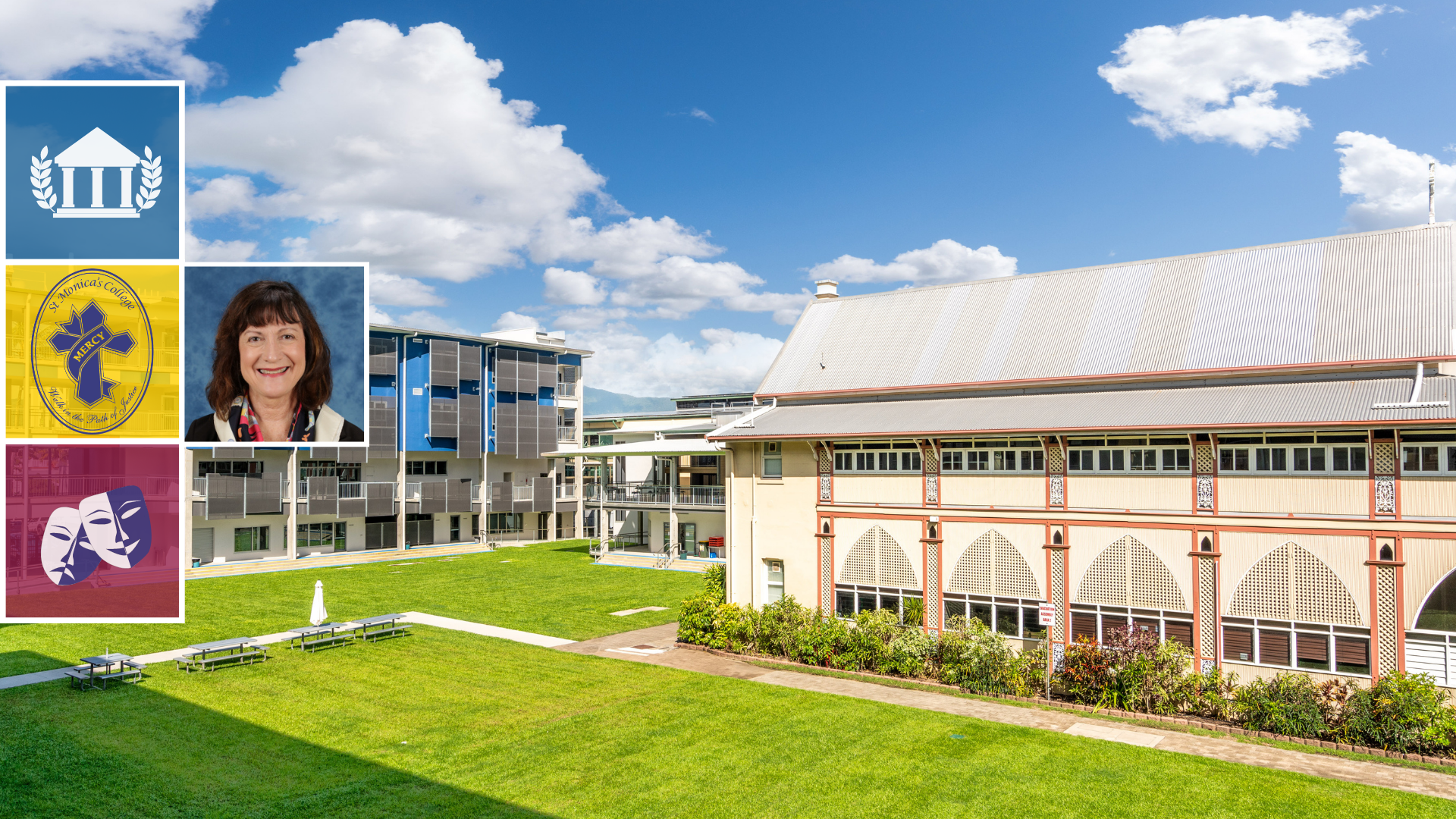Catholicism and the teachings of the Sisters of Mercy have played an enormous role in the personal and professional life of Edna Galvin. We find out more.

A proud North Queenslander, Edna Galvin’s lengthy career has been a glorious one, with marvellous opportunities that have helped her reach the position she enjoys today.
She has taught in both co-educational and single-gender schools, particularly with students at senior level, including serving as Head of English and Assistant Principal – Curriculum. Most recently, she has sat on a number of panels for the Queensland Curriculum and Assessment Authority (QCAA) including as State Panel Chair for English and as a Senior Marking Supervisor for the Queensland Core Skills Test.
Edna has also been involved in many meetings during the recent changes in Queensland, including the text selection group for English, as they move to the nationally recognised ATAR for students.
“I’m very, very lucky that I’ve had those opportunities,” Edna admits. “And now, I’ve come to St. Monica’s as Principal. I was an Assistant Principal for quite a long time but I’ve always known about this school and its excellent reputation, so it was a wonderful opportunity to take on the Principal role.”
EdSmart: Can you tell us some about your relationship with St Monica’s College before becoming Principal?
Edna Galvin: “Well, one of the past deputies of the school was also one of the Senior Marking Supervisors, so I worked with her for many years. She knew my profile and, when the position first came up, she was very supportive. It was the middle of the year, I was very busy with my own school and so I said, “I don’t think it’s the right time at the moment’.”
“The year went on, and my husband and I were in Sydney attending a conference but, this particular night, we were at the theatre. I turned my phone on during interval – just to see if any of our children were trying to contact us – and there was a message saying that the person they had chosen had taken another job. My husband and I spoke about it and he said, ‘You should put your hand up. It’s time.’ So, I did.”

What do you feel defines St Monica’s as a learning institution?
“St Monica’s turns 131 years old in 2021. A number of women that I went to university with came from St Monica’s College. They were always strong, independent, articulate women like many students are from Mercy schools. In fact, the current Deputy Principal, Rosa Lanzo, who was ahead of me at university, also went to a Mercy school. I went to a Sisters of Mercy school, my cousin is a Sister of Mercy, so there are many connections.”
“The Mercy charism defines everything at St Monica’s. It’s the idea of supporting young women to do as well as they can and, if you’re fortunate enough to do very well, then the onus is on you to give back to your community. To reach down – particularly to women who need support. I think that comes across very strongly, that students leave the school with a very strong sense of social justice, and we certainly see that in the women who leave here. The alumni are very strong here at St Monica’s. They are very supportive of making sure that whatever past students do, even if they are still not practicing Catholics, they really have taken on that idea of social justice.”
“St Monica’s is also very strong academically. We had the most students in 2020 receiving the QCAA Award for Academic Excellence of all the Catholic schools in Cairns, which is pretty amazing, particularly after learning from home last year. We’re also very good at looking after those students that need a bit of extra care.”

Is there anything you’ve introduced specifically to the school during your tenure that you’re proud to have championed?
“The Assistant Principal – Curriculum and I started the STARS Project — St Monica’s Terrific Authors and Readers. I’ve always found, if you can produce a product, a book, the students are much more interested in being involved in a writing project. The idea behind STARS is that we find talented writers based on their NAPLAN results and then we challenge those students to write a story to be published. It’s a no pressure, no assessment, fun activity and, so far, the STARS are onto their fourth book of collected stories.”
 What do you see as the role of technology in schools from both a learning and operational perspective?
What do you see as the role of technology in schools from both a learning and operational perspective?
“At the end of the day, teaching is an incredibly personal thing. Robots will never replace teachers. We’ve certainly found out, during the learning from home period, that the students really missed the human element of teaching. But it’s absolutely critical for technology to help make processes in schools proceed smoothly.”
“For all the technology, students still have to do aggressive written exams, and there is research about brain function and writing, as opposed to typing. Certainly, young people today need to have excellent keyboarding skills. Technology’s a good thing but we’re also very aware students can also come under attack. We really want technology to be an aide to learning but we also need parents to not be naive about what happens on screens.”
“Specifically, EdSmart has been a great aide to learning by improving our organisation. It has been excellent for all parent slips, particularly when organising excursions, camps or retreats for the students.”

So, how does EdSmart fit into your technology mix?
“It has been a lifesaver for many people, particularly since COVID, because we use it for a whole range of applications now. Our Assistant Principal Administration is very good at encouraging everybody to use it, as it has more or less become our administration platform. Technology’s role is absolutely critical and, obviously, the easier it is to use, the more you’ll get buy-in from people.”
“EdSmart is now being used for many organisational elements such as our weekly calendar, locking in dates for future events, professional development requests, booking venues and compliance documentation. It was of great assistance during COVID so everyone knew what was happening in the college but, since then, we have extended its use even more.”
“The EdSmart platform has given us the ability to improve our workflow by the ability to link forms and guide users through the whole process. Collating documents and being able to easily send information to both students and parents has also been of enormous assistance. It allows staff to competently deal with all the required paperwork and compliance now required of schools, particularly in the ongoing COVID environment, when organising activities.”
When you’re away from your desk, what does Edna Galvin get up to?
“Well, I taught private speech and drama for a very long time, and I’ve adjudicated eisteddfods, which I’ve really enjoyed, I must say. So, the arts are a passion of mine, certainly. I also love trivia. I’m part of a trivia team comprised of ex-teachers. It’s a bit sad, isn’t it?” [I call that tough competition at Trivia Night! – ed].
 “I love sport, as well. I do pilates and weight training, which are both important to me, to stay fit and healthy, and try to be a role model for students in that way. But I’m very passionate about the arts. One of my sons is actually a professional ballet dancer in a company in Switzerland. I think if you can encourage all students to have a love of the Arts, as well as seeing sport as something they really need for their fitness – yes, these themes are important to me.”
“I love sport, as well. I do pilates and weight training, which are both important to me, to stay fit and healthy, and try to be a role model for students in that way. But I’m very passionate about the arts. One of my sons is actually a professional ballet dancer in a company in Switzerland. I think if you can encourage all students to have a love of the Arts, as well as seeing sport as something they really need for their fitness – yes, these themes are important to me.”
www.stmonicas.qld.edu.au



